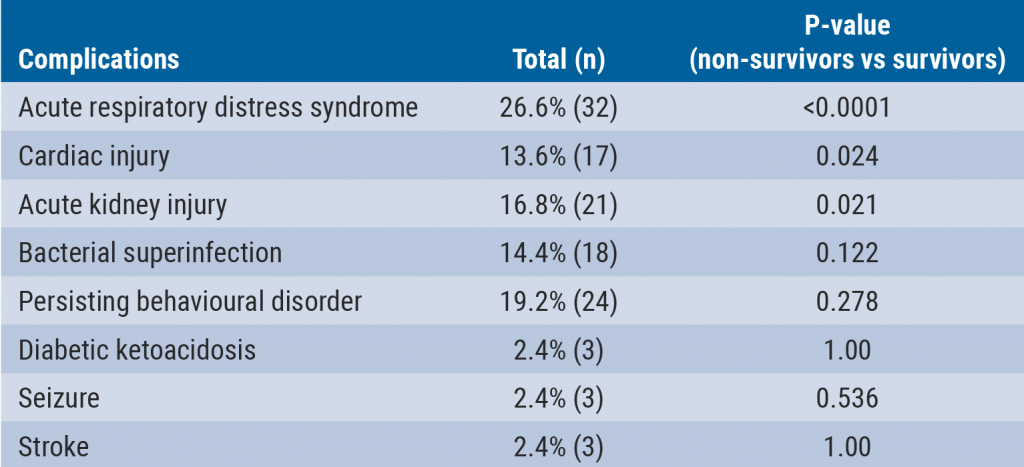"The current clinical guidelines do not recommend cardiopulmonary exercise testing out of concern that this test could worsen the patients' symptoms. However, we found that cardiopulmonary exercise testing was able to identify reduced exercise capacity in about 45% of patients," Dr. Donna Mancini of Icahn School of Medicine at Mount Sinai told Reuters Health by email.
"This reduced functional capacity was from a circulatory abnormality. This may include changes involving the pulmonary or peripheral vasculature," she noted.
Dr. Mancini and her colleagues studied 18 men and 23 women with post-acute sequelae of COVID-19 (PASC, or long COVID). Their mean age was 45 years and all had ongoing shortness of breath for more than three months after recovering from COVID, despite normal pulmonary-function tests, chest X-rays, chest CT scans and echocardiograms.
All 41 patients underwent CPET and symptom assessment 8.9 months after acute COVID infection (range, three to 15 months), the study team reports in JACC: Heart Failure report.
"There are several important take-home messages in regards to patients with long-haul COVID with unexplained dyspnea," Dr. Mancini told Reuters Health.
First, the vast majority of patients (88%) exhibited variability in ventilation consistent with dysfunctional breathing, resting hypocapnia, and/or an excessive ventilatory response to exercise. And more than half (58%) had evidence of circulatory impairment to peak exercise performance, she noted.
"Many of the patients had low resting CO2 levels suggesting chronic hyperventilation. With exercise many had rapid erratic breathing patterns. The hyperventilation coupled with the dysfunctional breathing may result in shortness of breath along with other vague symptoms these patients commonly report such as mental fogginess, tingling, palpitations and chest pain," Dr. Mancini explained.
She noted that "low-level functional testing recommended by the guidelines such as a 6-minute walk test would not be able to detect these abnormalities. Identifying dysfunctional breathing can be difficult as there is no precise definition and requires careful review of the raw data generated during testing. This finding is important in that dysfunctional breathing can be treated with breathing retraining. Moreover, prognosis related to this as a cause of unexplained dyspnea is good," Dr. Mancini said.
In addition, 19 of the 41 patients (46%) met criteria for myalgic encephalomyelitis/chronic fatigue syndrome (ME/CFS). "This is the first report directly linking long-haul COVID to chronic fatigue," Dr. Mancini said.
"It is important to emphasize that the data applies to a subgroup of long-haul COVID patients with ongoing shortness of breath with normal cardiac echoes and pulmonary-function tests," Dr. Mancini told Reuters Heath.
The clinicians note in their paper that roughly 20% of patients who recover from an acute COVID infection having lingering symptoms with dyspnea and fatigue despite normal cardiac and pulmonary function.
"Although this study included a small cohort of patients, CPET was able to identify significant abnormalities that can be used to diagnosis the syndrome and potentially guide treatment," they say.
The study had no commercial funding and the authors have no relevant disclosures.
SOURCE: https://bit.ly/3FSESny JACC: Heart Failure, online November 29, 2021.
By Megan Brooks
Posted on
Previous Article
« ICD 2021 Highlights Podcast Next Article
Certain gut microbiota more responsive to low FODMAP diet for IBS »
« ICD 2021 Highlights Podcast Next Article
Certain gut microbiota more responsive to low FODMAP diet for IBS »
Related Articles

August 18, 2021
Severe outcomes of COVID-19 in patients with dementia
© 2024 Medicom Medical Publishers. All rights reserved. Terms and Conditions | Privacy Policy
HEAD OFFICE
Laarderhoogtweg 25
1101 EB Amsterdam
The Netherlands
T: +31 85 4012 560
E: publishers@medicom-publishers.com

